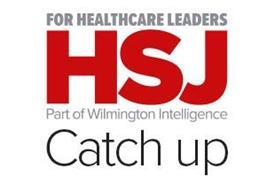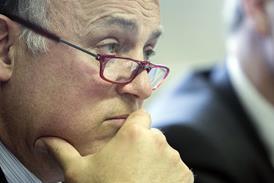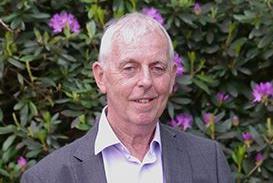HSJ Future of NHS Leadership and King’s Fund find one in three trusts have board level vacancies, plus the rest of today’s news and comment

4.29pm The BBC reports that the first British military reservists are set join troops in Sierra Leone to help combat the outbreak of Ebola in West Africa.
3.36pm The HSJ Future of NHS Leadership inquiry and a King’s Fund paper highlight the causes of the ongoing crisis in leadership of the health service. Richard Lewis, partner at Ernst & Young, explains how.
It has agreed with local commissioners to restrict access to its rheumatology service for new routine patients.
The trust was unable to say when this restriction would be lifted.
3.00pm Foundation trusts will be regulated according to how well they meet the new government targets for accessing mental health services being introduced next year, Monitor has announced.
The risk assessment framework , the set of criteria used by the regulator uses to assess trusts, will include these additional mental health targets.
If trusts materially or consistently fail these targets for three quarters in a year, Monitor will treat it as a possible indication of wider problems with how a trust is being run, and will consider whether the trust may be in breach of its licence, and could ould lead to an investigation or further action.
It follows the government’s introduction of new waiting time standards for talking therapy treatment. Foundation trusts will be required to report whether they meet these standards on a quarterly basis.
Stephen Hay, Monitor’s managing director of provider regulation said: “Tackling mental health problems can be extremely time-sensitive. We know for example that early treatment of psychosis can dramatically improve chances of recovery.
“These important changes to the way we regulate foundation trusts build on our work to bring mental health standards more in line with the way we regulate other services.”
Monitor is also consulting on adding indicators to help it regulate trusts which provide high secure services for mental health. Following a change in the law last year, these trusts are now able to apply for foundation trust status following a change in the law last year.
The consultation will close in February 2015 and the updated risk assessment is expected come into force in April.
1.37pm Take a look our interactive maps of local NHS waits around England in October, produced by waiting times expert Rob Findlay, showing the pressures and one year waits, with links to all the detail by organisation and specialty
Last week’s figures from NHS England show that 7,760 patients waited more than four hours to be seen, treated, admitted or discharged.
This is the highest number since weekly records began in 2010.
Emergency admissions via A&E were at their highest ever level last week, with 110,092 patients admitted.
The £344m merged budget proposed by Dorset Clinical Commissioning Group, the county council and Bournemouth and Poole borough councils for 2015-16 has been slashed by 80 per cent to £60m, HSJ can reveal.
The new pooled budget is just £5.4m above the minimum requirement.
1.03pm Walsall Healthcare Trust has instigated an action plan to clear its ‘significant’ waiting list after being hit by a ‘perfect storm’ of IT problems and heightened demand that threatens to push it £9m into the red.
Its prediction of a deficit at year end represents a deterioration in the financial position of the trust, which had aimed to be in a break even position.
Trust chief executive Richard Kirby told HSJ it had been beset by difficulties in what he described as a “tough year”.
12.50pm In response to the “record-breaking low performance” in accident and emergency departments,shadow health secretary Andy Burnham said: “Last week was the worst week on record for patients waiting at A&E but the Government is acting as if it’s not happening. Ministers can’t carry on like this.
“Before the Commons breaks for Christmas, ministers need to come and set out the measures they will take to help the NHS cope over the Christmas period.
“Labour has been warning the Government for months about the growing crisis in A&E but it has failed to act. But even ministers must now accept that these figures are a worrying wake up call. They are proof you can’t trust the Tories with the NHS.”
He added: “David Cameron has allowed A&E to sink into crisis and must now accept his responsibility to turn it around.”
11.55am In article for the The New Statesman, Andy Burnham hits back at claims made by Nick Clegg during PMQs that he privatised Hinchingbrooke Hospital when he was health secretary under the last Labour government.
Mr Burnham accuses the deputy prime minister of making “pantomine-style gestures”.
He writes that when he brought in his NHS Preferred Provider policy in 2009, he “specifically asked for my new rules to be applied to this tender process”, and outside of that process he “asked the NHS to approach directly all surrounding NHS hospitals to see if an NHS operator could be found”.
Instead he claims: “The fact is that the decision to appoint Circle probably crossed [Mr Cleggs’s] desk at some point. Clegg’s government privatised the operation of Hinchingbrooke.”
11.30am The House of Commons Library has produced a summary note compariing NHS winter pressures to date in 2014-15 with the equivalent period last year.
10.55am Accident and emergency department performance against the four hour target is the worst its been since April last year.
Only 87.7 per cent of patients were seen, treated, admitted or discharged against the 95 per cent target, NHS England figures show.
10.51am Delayed transfers of care increased by 28.9 per cent in the first week of December, compared to the same week last year.
There were 19,349 delays compared to 15,015 delays last year, according to winter pressure daily reports published by NHS England today.
HSJ recently reported that DTOCs are at a record high.
There were 2,445 ambulances queuing outside A&E departments last weekend according to NHS England figures.
However, this is an increase from the same weekend last year, where 1,989 patients were waiting in ambulances.
The winter pressure daily situation reports, which are usually published from November onwards but were delayed this year, reveal that University Hospitals of Leicester Trust had the highest number of ambulances waiting last weekend – 115.
10.44am The Times also reports that thousands of breast cancer patients with dangerous genetic mutations have been urged to switch to cheap, platinum-based chemotherapy.
Doctors called for wider genetic testing on the NHS after finding that women with BRCA mutations, such as that carried by the actress Angelina Jolie, responded better to a drug not commonly used to treat breast cancer.
10.33am The Times reports that women at risk of breast cancer should routinely be offered preventative drugs in the same way that statins are used to protect against heart attacks, according to a landmark study showing a 6p-a-day pill gives protection for decades.
Only one woman in 500 eligible to get tamoxifen to prevent cancer was getting the drug, and more than 3,000 cases a year could be prevented if GPs were more willing to prescribe it, experts said.
Peter Wilczynski is the senior partner of Lakeside Surgery in Corby, one of four large GP practices in Northamptonshire that plan to form the new partnership.
While the partnership will initially serve a population of just under 100,000, it hopes to merge with other nearby practices to reach a total list size of 300,000.
The initial merger will make the partnership one of the biggest primary care providers in the country - and the largest in a single area.
10.01am An accident and emergency ward was closed at at Tameside Hospital Foundation Trust after a suspected CS gas attack, the BBC reports.
Greater Manchester Police said a man “discharged a noxious substance” in Tameside General Hospital, which caused a umber of people suffer effects similar to those associated with CS gas.
The ward was closed for about a hour and the man was arrested earlier this morning.
9.55am The Guardian reports that care.data pilot schemes might be further delayed until well into the new year.
9.35am Over in our comment section, savings will only be achievable if the NHS uses marketing and advertising to effect behavioural change, says Chris Powell, chair of the Advertising Standards Board of Finance.
7.00am Good morning and welcome to HSJ Live. We begin the day with the news that one in three trusts have at least one vacancy or interim executive on their board, according to a King’s Fund report based on research by HSJ.
Finance director posts have the highest number of vacancies, while nursing director posts have been vacant for the longest period, data released to HSJ under the Freedom of Information Act revealed.
A “perceived blame culture” in which “executives feel exposed if anything goes wrong, even when outside of their control”, may be dissuading people from taking up board roles, analysis by the King’s Fund also found. The think tank’s report pointed to “unrealistic expectations of how quickly change can be achieved”.























No comments yet